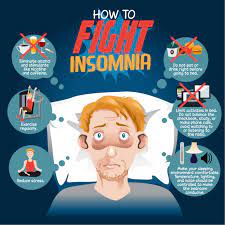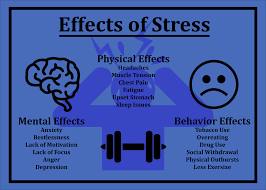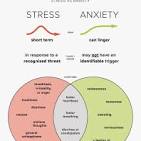The Relationship Between Cortisol and Anxiety
When it comes to stress and anxiety, cortisol often takes center stage. Cortisol is a hormone produced by the adrenal glands in response to stress. It is commonly known as the “stress hormone” because its levels tend to rise in stressful situations.
While cortisol is essential for our survival and helps us cope with stress by increasing alertness and energy, chronically high levels of cortisol can have detrimental effects on our physical and mental health. One such effect is the exacerbation of anxiety symptoms.
Research has shown that prolonged exposure to high levels of cortisol can contribute to the development or worsening of anxiety disorders. Elevated cortisol levels can disrupt the balance of neurotransmitters in the brain, such as serotonin and dopamine, which play a crucial role in regulating mood and emotions.
Furthermore, cortisol can impact the functioning of the amygdala, the part of the brain responsible for processing emotions like fear and anxiety. High cortisol levels can lead to an overactive amygdala, resulting in heightened feelings of anxiety and hypervigilance.
In addition to its direct effects on brain function, cortisol can also weaken the immune system and disrupt sleep patterns, both of which can contribute to increased feelings of anxiety and overall stress levels.
Managing cortisol levels is therefore crucial in managing anxiety. Strategies such as regular exercise, mindfulness practices, adequate sleep, healthy eating habits, and stress-reducing techniques like deep breathing or meditation can help regulate cortisol production and mitigate its negative impact on anxiety.
If you are experiencing persistent feelings of anxiety or believe that your cortisol levels may be contributing to your symptoms, it is important to consult with a healthcare professional for proper evaluation and guidance on effective management strategies.
6 Effective Tips to Manage Cortisol and Reduce Anxiety
- Practice stress-reduction techniques like deep breathing or meditation to help lower cortisol levels and reduce anxiety.
- Get regular exercise as it can help regulate cortisol levels and improve mood, reducing anxiety symptoms.
- Maintain a healthy diet rich in fruits, vegetables, and whole grains to support balanced cortisol production and manage anxiety.
- Ensure you get enough quality sleep each night as lack of sleep can elevate cortisol levels and worsen anxiety.
- Limit caffeine intake as it can increase cortisol release, leading to heightened anxiety levels.
- Connect with others for emotional support, which can help reduce stress and lower cortisol levels associated with anxiety.
Practice stress-reduction techniques like deep breathing or meditation to help lower cortisol levels and reduce anxiety.
To effectively manage cortisol levels and alleviate anxiety, it is beneficial to incorporate stress-reduction techniques such as deep breathing or meditation into your daily routine. These practices have been shown to help lower cortisol levels in the body, promoting a sense of calm and relaxation. By engaging in deep breathing exercises or meditation regularly, you can actively combat the effects of stress on both your physical and mental well-being, ultimately leading to a reduction in anxiety symptoms. Consistent practice of these techniques can contribute to a more balanced cortisol response and an overall improved sense of emotional well-being.
Get regular exercise as it can help regulate cortisol levels and improve mood, reducing anxiety symptoms.
Regular exercise is a highly effective way to manage cortisol levels and alleviate anxiety symptoms. Engaging in physical activity helps regulate the production of cortisol, the stress hormone, while simultaneously boosting mood-enhancing neurotransmitters like endorphins. By incorporating regular exercise into your routine, you can experience a reduction in anxiety levels and an overall improvement in your emotional well-being. Whether it’s a brisk walk, a yoga session, or a cardio workout, staying active can be a powerful tool in combating stress and promoting mental health.
Maintain a healthy diet rich in fruits, vegetables, and whole grains to support balanced cortisol production and manage anxiety.
A key tip for managing cortisol levels and anxiety is to maintain a healthy diet rich in fruits, vegetables, and whole grains. These nutrient-dense foods provide essential vitamins, minerals, and antioxidants that support balanced cortisol production and overall well-being. By fueling your body with wholesome ingredients, you can help regulate stress hormone levels and promote a sense of calmness and mental clarity. Making conscious choices about what you eat can have a significant impact on your body’s response to stress and contribute to a more balanced emotional state.
Ensure you get enough quality sleep each night as lack of sleep can elevate cortisol levels and worsen anxiety.
Ensuring you get enough quality sleep each night is crucial in managing cortisol levels and alleviating anxiety. Research has shown that a lack of sleep can lead to elevated cortisol levels, which in turn can exacerbate feelings of anxiety and stress. By prioritizing a consistent sleep schedule and creating a restful sleep environment, you can help regulate your body’s cortisol production and promote overall well-being. Quality sleep is not only essential for physical health but also plays a vital role in maintaining optimal mental health and emotional balance.
Limit caffeine intake as it can increase cortisol release, leading to heightened anxiety levels.
Limiting caffeine intake is a valuable tip for managing anxiety as it can trigger the release of cortisol, the stress hormone, which in turn can elevate anxiety levels. Caffeine consumption stimulates the adrenal glands to produce cortisol, potentially intensifying feelings of stress and anxiety. By reducing caffeine intake, individuals can help regulate cortisol levels and reduce the risk of exacerbating anxiety symptoms. Making mindful choices about caffeine consumption can contribute to a more balanced approach to managing stress and promoting overall well-being.
Connect with others for emotional support, which can help reduce stress and lower cortisol levels associated with anxiety.
Connecting with others for emotional support is a valuable tip for managing anxiety and reducing stress levels. Research has shown that social support can have a positive impact on mental well-being by providing a sense of belonging, understanding, and comfort. By sharing your feelings and experiences with trusted individuals, you can alleviate feelings of isolation and overwhelm, leading to lower cortisol levels associated with anxiety. Building strong connections with others not only fosters emotional resilience but also promotes a sense of community and mutual support in navigating life’s challenges.



